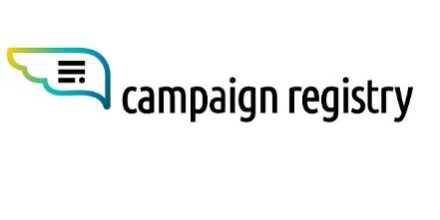The SMS Campaign Registry for Business Phone Systems
Is registration required to send text messages?
In today’s business world, it is important for organizations to ensure its employees are able to work remotely and be mobile. Businesses also seek to deploy solutions that are flexible and scalable. For these reasons many organizations procure VOIP (voice over Internet Protocol) cloud-based phone systems. These systems offer many benefits including the ability for employees to be able to run their phone extensions from either their cell phone or their laptop computer. These systems also allow for texting or SMS (short message service) messaging, however, to use the SMS feature, mobile carriers now require businesses to do what is known as TCR, or The Campaign Registration. SMS registration is the process of registering phone numbers with a wireless carrier to prevent messages from being blocked. It can also refer to a process that allows businesses to manage their SMS registration brand and campaign processes.

Benefits
Not only is TCR registration required, but it’s also good for your business. Here are the top benefits:
1. Better message deliverability
Mobile carriers have message filters to block questionable or fraudulent messages. Registering allows you to pre-verify your business and message content, significantly increasing the likelihood that your messages get delivered to intended recipients.
2. Higher throughput rate
Registered 10DLCs (Digit Long Codes) gain higher messaging throughput. This means you can send more messages per second. The exact rate varies depending on your brand and use case. However, this increased throughput benefits companies who may have a need to send mass text messages.
3. Increased security and trust
Registering increases trust and security around business texting. It helps legitimize an organization and its text messaging use case. It also ensures companies have an opt-in procedure, a key component of SMS compliance.
Penalties
There are negative consequences for not registering with The Campaign Registry.
- Your organizations’ messages will be filtered, blocked, and not delivered to your contacts. In many cases, the phone system will display “message not allowed” messages when users attempt to send a text.
- Your organization could get banned by the carriers for texting or calling with unregistered numbers.
- Carriers can fine brands up to $10 per message sent by an unregistered 10DLC.
- Other unregistered phone number fees are levied by CSPs (communication service providers), who also must do their part in curbing fraudulent messaging.
Information needed to register campaign
This is where you share information about what you’ll be texting contacts about. You’ll need to provide:
- Texting use case. Your overarching reason for texting. Examples include customer care, marketing, delivery notifications, and two-factor authentication.
- Message content attributes. Carriers want to know if you plan to use certain messaging attributes, such as SMS links, age-gated content, or embedded phone numbers.
- Example messages. You must provide message examples or templates to prove your use case is valid and accurate. You just need to give TCR a sample of the language you will use.
- Opt-in information. This is how you’re collecting consent to text your contacts. You are required to obtain consent before texting any contact. Get SMS opt-in examples by use case here.
There can be many compelling reasons for a business to use text messaging as a part of their operations. Texting as a form of communication has many proven benefits including speed and automation. Spam via email is a part of our lives now. The TCR seeks to not make text messaging a similar experience. Therefore for all the benefits mentioned above, go ahead and get your organizations’ phone numbers properly registered to send SMS messages.







